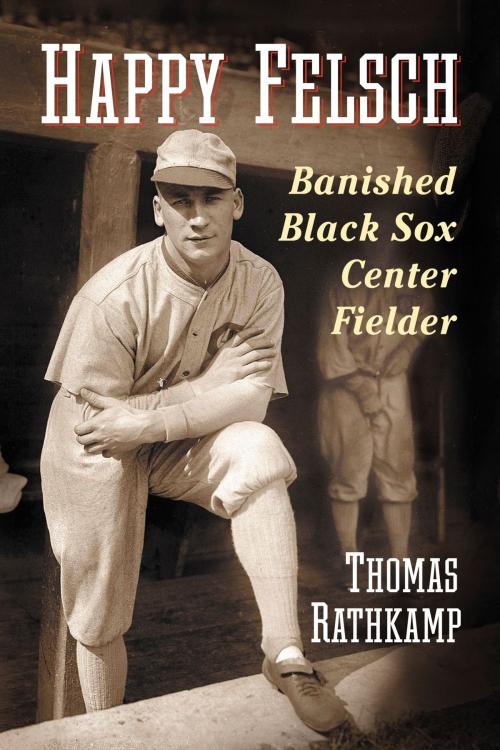Happy Felsch
Banished Black Sox Center Fielder
Nonfiction, Sports, Baseball, History, Biography & Memoir| Author: | Thomas Rathkamp | ISBN: | 9781476623238 |
| Publisher: | McFarland & Company, Inc., Publishers | Publication: | April 27, 2016 |
| Imprint: | Language: | English |
| Author: | Thomas Rathkamp |
| ISBN: | 9781476623238 |
| Publisher: | McFarland & Company, Inc., Publishers |
| Publication: | April 27, 2016 |
| Imprint: | |
| Language: | English |
Schooled on the sandlots of Milwaukee, Chicago Black Sox center fielder Oscar “Happy” Felsch (1891–1964) was a rising star who then blew a promising career for a few bucks by participating in the throwing of the 1919 World Series. On the field, Felsch was hitting his peak in 1920, the year the scandal hit the newspapers. His speed, run-producing power and defensive prowess—all attributes that might have garnered consideration by the Hall of Fame—earned comparisons to the great Tris Speaker. Instead, he ended up playing the fallen hero for remote baseball enclaves in Montana and Canada. Did he really play to lose the series or just say that he did out of fear of reprisal by crooked gamblers? Felsch talked about the scandal more than any of the other eight banned players. This book analyzes his three interviews, revealing his ultimate gullibility and greed and rampant contradictions.
Schooled on the sandlots of Milwaukee, Chicago Black Sox center fielder Oscar “Happy” Felsch (1891–1964) was a rising star who then blew a promising career for a few bucks by participating in the throwing of the 1919 World Series. On the field, Felsch was hitting his peak in 1920, the year the scandal hit the newspapers. His speed, run-producing power and defensive prowess—all attributes that might have garnered consideration by the Hall of Fame—earned comparisons to the great Tris Speaker. Instead, he ended up playing the fallen hero for remote baseball enclaves in Montana and Canada. Did he really play to lose the series or just say that he did out of fear of reprisal by crooked gamblers? Felsch talked about the scandal more than any of the other eight banned players. This book analyzes his three interviews, revealing his ultimate gullibility and greed and rampant contradictions.















